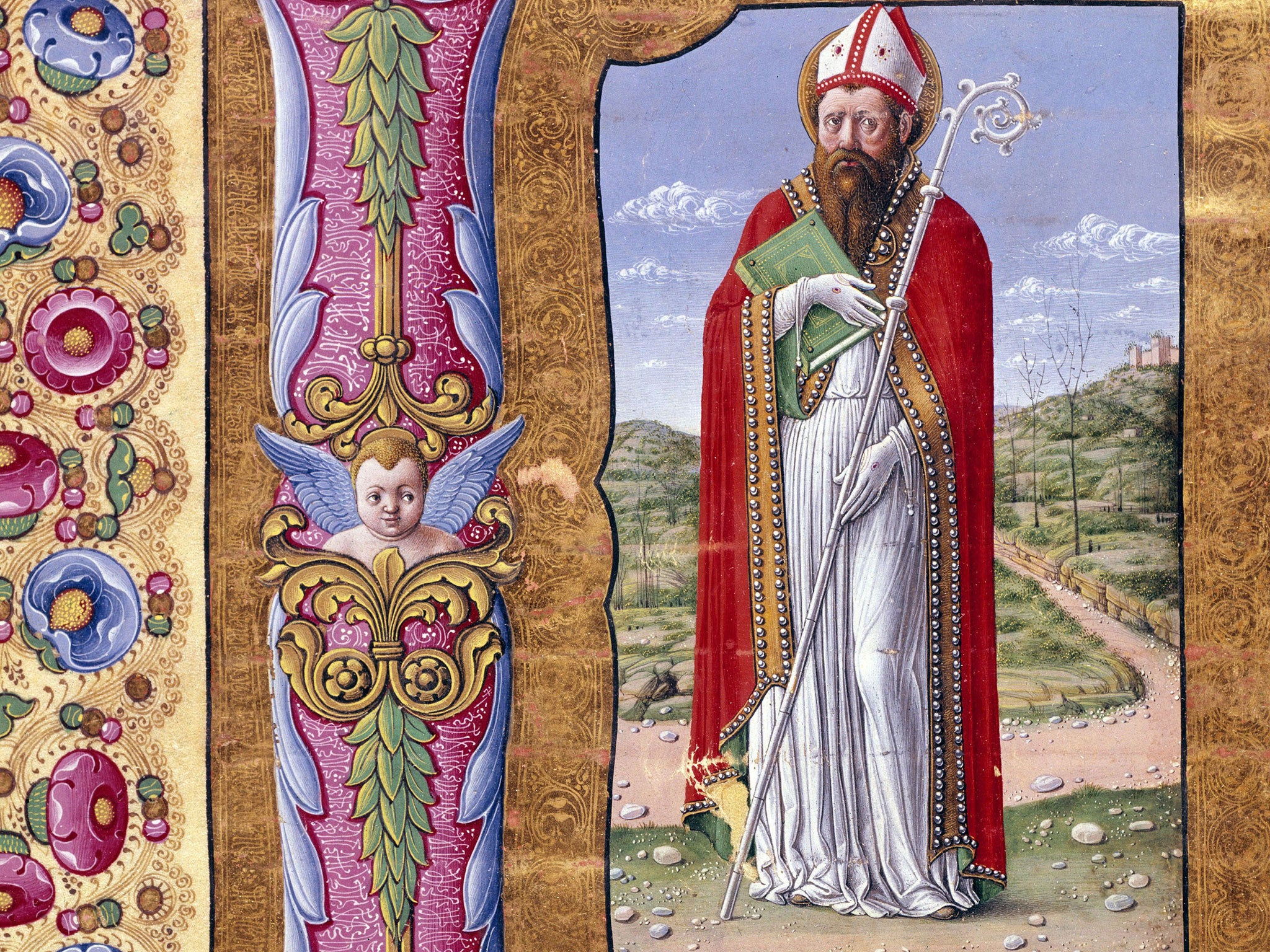Augustine: Conversions and Confessions by Robin Lane Fox, book review
Saint Augustine's spiritual journey was often complex and invariably troublesome

Christian saints fall into different categories. There are the worthy saints much favoured in the 19th century, usually virginal young women who led pure lives before succumbing to a dreadful illness and dying in a holy fashion. Then there are the jolly saints, more popular today, who were happy all the time in a Pollyanna-ish way, gave everything away and talked to birds and animals and the like. Then there are the moody, difficult saints who seem to have been somewhat tortured and who spent a lot of time condemning things. Augustine of Hippo belongs to the latter camp. Well known for the memorable plea, "God give me chastity – but not yet", his Confessions, one of several of his works that have survived the test of centuries, is a classic of Christian theology. Composed of a series of books, it describes his slow conversion to the faith via the pitfalls of heresy and lust, contrasting "What I once" was with "What I am".
A hugely influential figure on the Catholic Church and indeed on the Protestant Reformers, he is not a figure that the churches, Catholic or Protestant, dwell on much now. The doctrines of original sin and predestination, which he helped to formulate, are not "in" with many clergy these days. His fixation with sex, which some have called borderline psychotic, is equally out of fashion, as it did so much to confirm the Church's tricky relationship to that side of life. His polemics against 4th and 5th-century heretics are wearying stuff.
Like a lot of saints, Augustine was self-absorbed, constantly weeding the garden of his soul, sometimes with scant concern for others. Undoubtedly devoted to his devout mother – who heroically "followed him over land and sea", as he recalled, he ignored her pleas to marry and get baptised. As a teenager, he took up with a concubine, a woman of a lower social standing selected for bedroom duties only. He later sent her packing during one of his regular battles with lust only to take up with concubine number two. Again in defiance of his mother's wishes (and tears) he also spent much of his life outside the pale of the Catholic Church with the Manicheans – later to be denounced – a sect that Lane Fox describes in depth. Followers of a guru called Mani, they spurned the Old Testament, dismissed the idea of Resurrection, believed the world was divided into the opposing kingdoms of light and darkness and saw matter as evil, basically. Never one of the Manichean Elect – you had to be celibate for that – Augustine spent years operating on the outer rim as one of the so-called Hearers. It was only in his thirties, after a profound experience in a garden in Milan, that he was won over to Catholic Christianity, one of a series of conversions described here.
Lane Fox's book is a work of dedicated scholarship and not for the casual reader. This is in no sense a biography and the author touches only relatively briefly on Augustine's life as bishop of Hippo, his other works and legacy. The focus is on the Confessions, studied in detail to trace Augustine's complex spiritual pilgrimage. At the same time, Lane Fox provides an immense amount of contextual information about his hometown of Thagaste in North Africa and about Carthage, Rome and Milan, comparing Augustine's life there with those of some very different contemporaries.
This is an impressive resource for classicists, theologians and historians of the late Roman Empire, who will enjoy chewing over the argument that the Confessions were written in a single burst, in 397. Others may find if hard to relate to a man whose ideas about life are not only utterly alien to our own but were seen as off-putting even in his own time.
As the author writes, "The 'slavery of God' to which Augustine devoted most of his life was too daunting for almost anyone else."
Allen Lane, £30. Order at £24 inc. p&p from the Independent Bookshop
Join our commenting forum
Join thought-provoking conversations, follow other Independent readers and see their replies
Comments
Bookmark popover
Removed from bookmarks